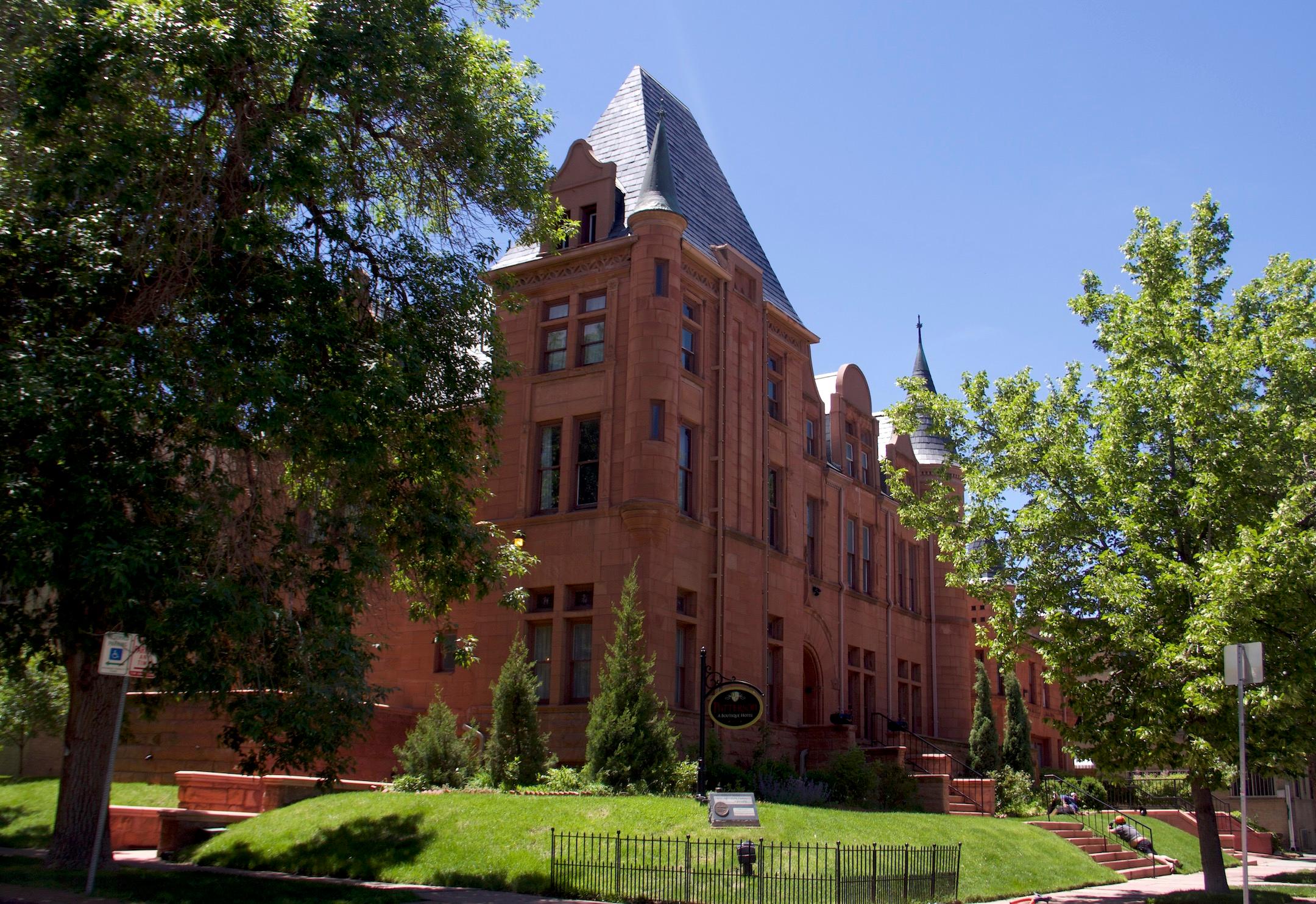Chris Chiari can't buy this kind of marketing: A haunted, marijuana-friendly bed and breakfast with the address of 420 E. 11th Avenue.
420! Ghosts!
Chris Chiari also can't buy a license to make his hotel, the Patterson Inn, marijuana-friendly. He says rules tacked on to a 2016 voter-approved law make his property too close to places like daycares, rehab centers, rec centers and public pools.
The law authorized pot lounges where people can consume their own weed. That original law included a 1,000-foot buffer for schools, which Chiari says does not apply to his business.
But Mayor Michael Hancock's Department of Excise and Licenses added additional 1,000-foot buffers meant to keep kids off the grass, as it were.
As a businessman, Chiari sees dollar signs in the building's fables, its THC-infused address and a 1,400-square-foot guesthouse, currently gathering dust. Legend says phantoms roam the Patterson, a 130-year-old mansion with a history of exorcism and suicides, including those of spooked guard dogs who jumped through glass windows to their deaths.
"I just want to take advantage of this carriage house that's an unused, separate entity and turn it into an Amsterdam-style coffee house, minus cannabis sales," said Chiari, who ran unsuccessfully for Denver City Council in 2015.
The hotelier said he will hire a "prominent" marijuana attorney this week to challenge those rules, and file a legal complaint within a month.
Denver Legislative Counsel Kirsten Crawford would not comment on the merits of a specific case -- Chiari's isn't even filed yet. She said a judge could very well kill all the distance requirements except for the ones around schools, if she or he sided against the city.
"I think that a possible outcome would be that depending on how someone postured the case, that, yeah there could be some sort of injunctive relief," Crawford said.
City officials interpreted voters' intent to justify the extra restrictions.
The Denver government was allowed to create "reasonable" regulations around the citizen initiative, according to the ordinance language. The business licensing department added buffers for daycares, pools, rec centers and addiction treatment centers after a public process that included neighborhood organizations, marijuana industry reps and other residents.
The outcome was a compromise, according to department spokesman Eric Escudero. Some people wanted stricter guidelines, some people wanted looser ones, he said. In the end, the department felt legally confident adding limitations because voters intended to limit exposure to kids.

"The distance requirements ... took months of hard work," Escudero said. "They were open to the public rule-making process, we received feedback of 75 written comments and held a three-hour public hearing. Fifty-five people spoke."
Escudero notes that the rules aren't that restrictive, considering that thousands of existing businesses can apply for a social consumption permit but have not.
Still, late last year, a task force report found that the new rules "restrict where neighborhood-approved businesses may locate and are more onerous than the approved initiative intended." Chiari's claim stems from the same ground.
At an April legislative meeting, council members considered whether to cut the buffers in half. The measure failed. The problem, naysayers said, was not the distance restrictions, but a bad business model: Cafe owners cannot sell cannabis products like a bartender can sell beers. The state legislature may have since solved that problem.
As long we're on a supernatural theme, it's fair to say City Councilwoman Robin Kniech played soothsayer.
Kniech all but predicted a lawsuit like this in April.
"Right now we have some debate over whether the department had the authority to pass the rules they passed or not," Kniech said, during an April 22 City Council meeting. She was questioning the business licensing department's right to add restrictions to a law created and authorized by Denver voters.
Council members considered whether to cut the buffers in half that night, but the measure failed. Kniech, who voted to deregulate, said a court could repeal all the added buffer zones if someone sued, which is exactly Chiari's goal.













